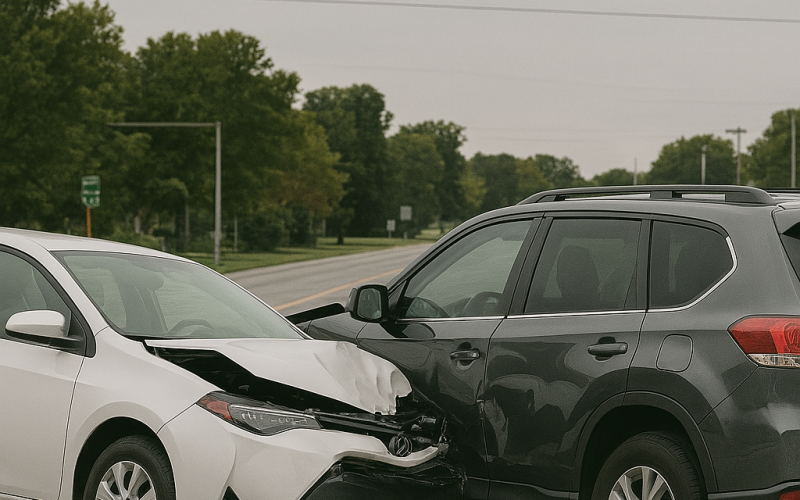If I Am Receiving Workers’ Comp Can I Quit My Job?




Getting injured at work can be a very frightening experience, and working through the workers’ compensation process can be extremely frustrating. Even if you are getting regular benefits, the period you need to wait to return to work can be a challenging time. Suffering from a work injury can feel like you have put your whole life on hold while you collect benefits. In some serious cases, you may not be able to return to the job you held before the injury.
In those situations, quitting your current job and moving on may come to mind — but is that a good idea? Is quitting while on work comp really an option? Maybe not. If you have been injured and you are receiving workers’ compensation benefits, talk to the South Carolina workers’ compensation attorneys at HawkLaw, P.A. before quitting so you fully understand what could happen to your benefits.
What Happens to Workers’ Comp Benefits When You Quit in South Carolina?
Whether you receive benefits for workers’ compensation does not directly tie back to whether you continue employment with that particular employer. There are plenty of situations where the employee should still get workers’ comp benefits even if they decide to quit the job where they were injured. However, benefits will not continue in every case. Resigning could halt benefits in some situations.
Healing Period Benefits and Light Duty Work
When a doctor has determined you cannot work, you may receive weekly temporary disability. In South Carolina, temporary disability is also known as healing period benefits or temporary total disability. These payments are designed to compensate you for the wages you have lost for being physically or mentally unable to work.
However, in some situations, you might not be able to go back to your normal job, but you could do some work. Perhaps your doctor gave you a restriction about how much weight you can lift or how long you can stand in one place. Your employer might ask you to do “light duty” work in those cases. This work is outside your normal job or employment status but follows your doctor’s restrictions.
If your employer offers you light-duty work, your total disability benefits will stop. However, you will earn your normal hourly wages instead. If the light duty work does not involve as many hours as you were working previously, you will often receive temporary partial disability benefits (TPD or lost wage benefits). TPD will cover the portion of your wages (up to about two-thirds of your pre-injury wages) that light duty does not cover.
If you refuse to do light duty work, that can be a basis to stop workers’ compensation benefits. That is, if you quit your job while the employer offers you a light-duty job, that can affect your eligibility to receive benefits.
Quitting to Pursue Another Career Path
Quitting your job can be very tempting when you realize you cannot return to your field of work because of your job injury. However, keep in mind that an employer can offer you light-duty work at any time. If your employer offers you light-duty work when you try to quit, that could be grounds to stop benefits — even if you know you need to go into another line of work because of the work injury.
While workers’ compensation benefits might follow you to your next employment, your prior employer could “suddenly open” a light-duty job as soon as you leave, giving your employer an excuse to stop benefits.
In general, it is a good idea to talk to a workers’ compensation attorney about the unique facts of your case before you quit your job. Do not put your benefits at risk simply because you are impatient or do not understand the process. Get legal advice from an experienced attorney before doing anything rash.
What Benefits Are You Receiving from SC Workers’ Comp?
The type of benefits you are getting will sometimes dictate whether quitting will matter in your situation. For instance, permanent partial disability (PPD) is not dependent on whether you quit at all, but lost wage benefits (TTD) might be affected.
Medical Benefits
In South Carolina, employers (or their insurance companies) are required to pay for any medical care that arises from a work accident. They cover all medical expenses. Many times the injured employee does not even see the medical bills.
Medical care can include both physical and mental health care. Physical medical care could include:
- Surgeries
- General follow-up care
- Emergency treatment
- Physical therapy
Mental health disorders might include things like:
- Depression
- Anxiety
- Acute stress disorder
- Post-traumatic stress disorder (PTSD)
Workers’ comp may not automatically provide mental health care. Instead, you may need help from a workers’ comp lawyer to get the medical care you need.
Lost Wages
One of the major goals of workers’ compensation benefits is to provide workers with wages while they recover from a work injury. Lost wage benefits are often called temporary total disability benefits (TTD) or temporary partial disability benefits (TPD).
These wage replacement benefits are the benefits that are most at risk if you decide to quit your job while receiving benefits. These wage loss benefits should continue until a doctor releases you to go back to work. As a result, if you quit, those rights might get cut off if you decline to return to work on full or light duty.
Permanent Partial Disability
Permanent partial disability benefits (PPD) are benefits designed to compensate you for any permanent loss of function you must suffer because of a workplace injury. These benefits are based on a doctor’s evaluation of your function after reaching maximum medical improvement or MMI. An injured worker may not have returned to their pre-injury self after reaching MMI, but they have recovered as much as possible under the circumstances.
For example, imagine you suffered a shoulder injury while lifting a heavy object at work. You tore your rotator cuff, and it required surgery to repair. You go through the surgery, required physical therapy, follow-up appointments, and other medical treatment. By the time you have finished, your doctor determines that your function is as good as it will get — you have reached MMI. However, your doctor also determined that you should not lift heavy objects above your head because of the surgery.
PPD compensates you for the loss of this ability. The doctor will calculate your impairment rating (expressed as a percentage), and then the workers’ compensation system uses use that percentage to determine your total loss of function. Your loss of function then determines the amount of PPD benefits you can receive. Further, PPD is also based on your average weekly wage before the accident.
PPD differs from permanent total disability benefits (PTD) because PPD is for a partial disability, but PTD is for a complete disability. PTD benefits apply when you no longer work at all because of a work-related injury, regardless of whether it is for your former employer. In these cases, the injured worker (called the claimant under workers’ compensation law) often cannot get unemployment benefits either, so they rely heavily on these disability payments from work comp insurance.
Can Your Employer Force You to Resign for Filing a Workers’ Comp Claim?
Workers in South Carolina enjoy certain protections for asserting their rights, including asserting workers’ compensation claims. That means that an employer cannot terminate you or force you to resign after you have filed a workers’ compensation claim.
Talk to a workers’ compensation lawyer if you believe your employer fired you because you filed a work comp claim. You may have legal options to get the benefits you deserve.
Why You Should Wait to Quit if On Workers’ Comp Benefits
Employers sometimes try to find ways around paying workers’ compensation benefits, especially to employees who have quit. As a result, it may be a good idea to wait to quit until after you have received all your benefits. Sticking it out with this employer might be difficult or frustrating, but it is often the best way to see that you keep receiving workers’ compensation benefits as you should.
However, if you receive a lump sum settlement as part of your workers’ compensation claim, you might be able to work something out with your employer that allows you to quit. Negotiating those terms and including them in your workers’ compensation settlement is a good way to protect your rights.
Resignation Benefits
In addition, some employers and their insurance companies want you to resign from your job. If that is the case, they might be willing to offer some monetary incentives for you to quit — something like a severance package. Those additional funds can be very valuable, and an employer can add them to your overall workers’ compensation settlement package.
If you quit before negotiating these terms, you might be giving up something the employer is willing to pay you to do. Of course, they will not offer you these additional resignation benefits if you have already quit your job.
In general, holding on with your current employer while your workers’ compensation case is pending is often the best choice.
Talk with an Attorney About Your Job Status on Workers’ Comp
If you are currently receiving workers’ comp, talk to an attorney before you take a new job. You might accidentally waive or give up your rights to benefits if you do not transition using the right methods. In some cases, quitting your job using any method can put your benefits at risk.
Worried About What Your Work Life Will Look Like When You Return?
HawkLaw can help injured workers determine the best time to quit. However, every case is different — get tailored legal advice for your situation by contacting our law firm. Call 888.HAWK.LAW for a free case evaluation* to get started!
John D. Hawkins
John Hawkins is the Founder and CEO of HawkLaw He has been licensed to practice law in South Carolina since his graduation with honors in 1994 from the University of South Carolina School of Law, where he was on the Law Review and Order of Wig and Robe.
-
$3,000,000*SettlementTrucking Accident
-
$1,005,000*SettlementCar Accident
-
$575,000*SettlementPersonal Injury
"*" indicates required fields











